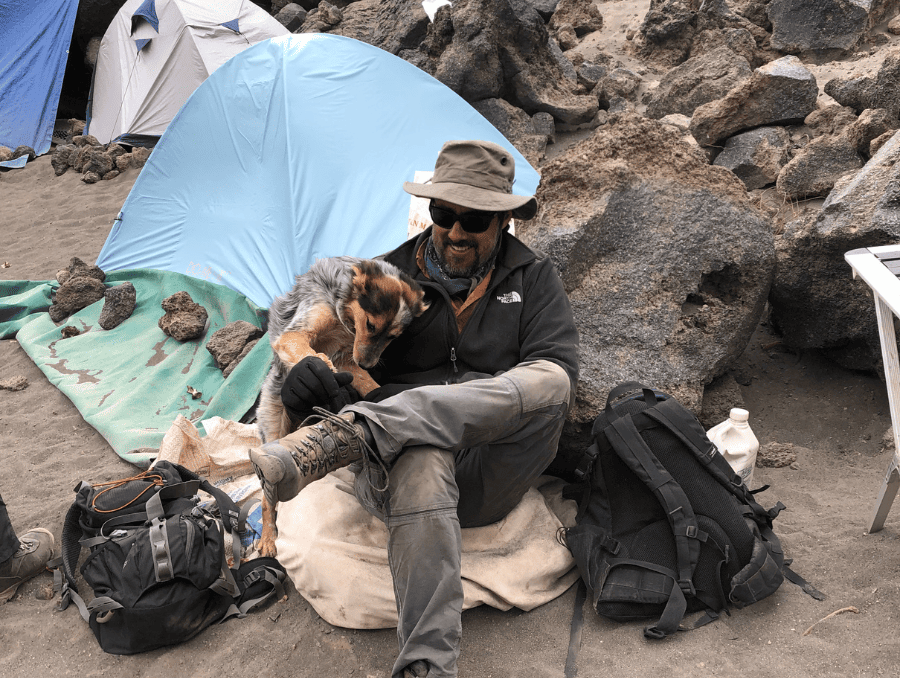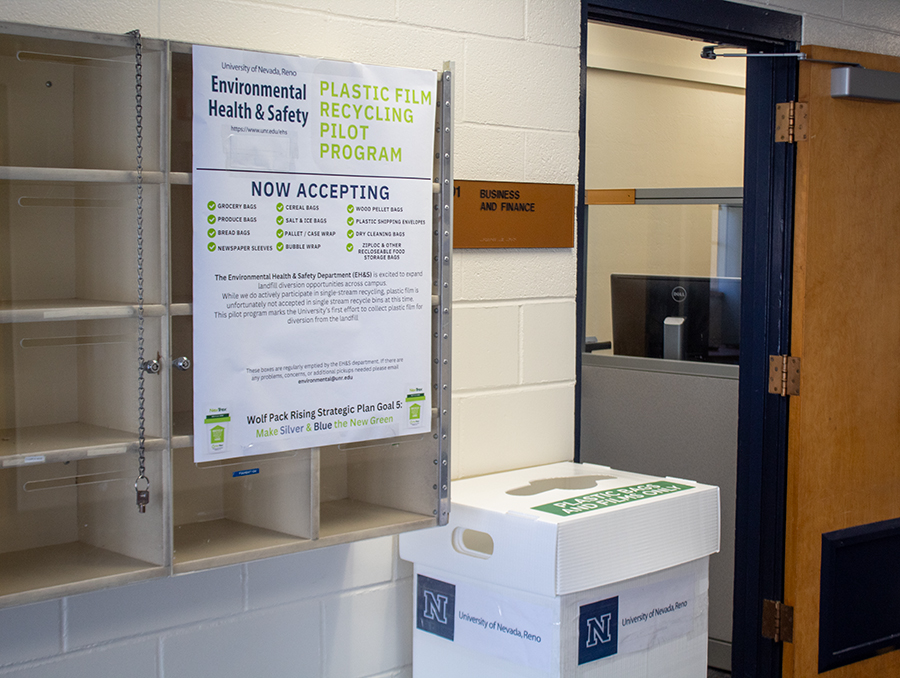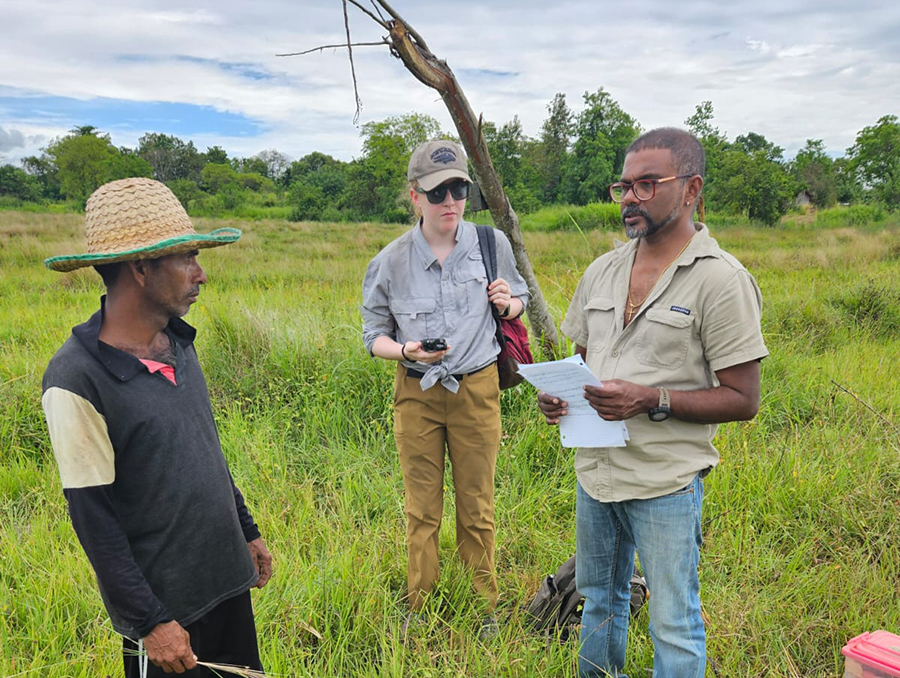After more than 13 years of impactful teaching and research within the College of Liberal Arts at the University of Nevada, Reno, Department of Anthropology Professor Chris Morgan, a widely respected anthropologist and archaeologist, is setting off on a year-long sabbatical this October to continue his long-term research in the high plateaus of China. Far from a vacation, this sabbatical marks the next chapter in an ambitious, decades-long investigation into how ancient human populations adapted to extreme environmental conditions.
Morgan, whose expertise lies in hunter-gatherer archaeology, has spent over twenty years studying behavioral adaptations among early societies living in marginal landscapes, particularly deserts and high-altitude environments. His current work focuses on ancient communities who lived more than 8,000 feet above sea level in isolated regions of western China, in landscapes marked by sparse vegetation, limited resources, harsh weather and steep terrain.
Why live in the mountains?
The core question at the heart of Morgan’s work is deceptively simple: Why would ancient people choose to live in such trying environments when lower, more habitable valleys offered more water, better resources, and greater biodiversity?
His research suggests that the answer may lie in a complex set of factors ranging from intergroup competition, resource depression, technological and economic innovations, and environmental changes. To better understand these decisions, Morgan and his international collaborators conduct archaeological excavations in China’s, South America’s and North America’s high mountains, looking for clues in the form of ancient tools, settlement patterns and paleoecological remains.
One significant type of artifact they have found is microblades: small, precisely crafted stone tools found throughout the higher latitudes of northeastern Asia and northwestern North America. These tools are thought to have served multiple purposes: as weapons used for hunting, as knives used for processing game, for making other tools and for cutting and making the sewn clothing that was essential to being mobile in high, cold environments. Each find adds a new layer of insight into how people not only survived but innovated in these extreme environments.
Morgan explained these communities weren’t just eking out an existence. They were thriving in their own way, developing adaptive technologies and strategies that are still underappreciated in much of the archaeological literature and in popular imagination.
A global research network: collaborating with the Institute of Vertebrate Paleontology and Paleoanthropology, Chinese Academy of Sciences
Though Morgan is based at the University of Nevada, Reno, his research is international. Over the years, he has built close working relationships with Chinese researchers, especially those at the Institute of Vertebrate Paleontology and Paleoanthropology (IVPP) in Beijing, one of the most prestigious scientific institutions in Asia.
He credits much of his success to the mutual trust and respect developed with his colleagues at the IVPP and other Chinese academic institutions. Among them are:
- Professor Zhang Xiaoling, a colleague who is a faculty member at the IVPP; she is welcoming Morgan back to China as part of this continued research effort.
- Associate Professor Yi Mingjie, another close collaborator at Renmin University in Bejing who worked with Morgan on a related project in Wyoming’s high mountains in 2012.
- Assistant Professor Jin Yingshuai, also at the IVPP, a colleague who spent the 2023-2024 academic year as a visiting scholar at the University of Nevada, Reno analyzing archaeological data from Tibet with Morgan.
- Associate Professor Zhang Dongju at Lanzhou University in Gansu Province, western China, with whom Morgan has worked since 2006.
“This project couldn’t happen without the collaboration of my peers,” Morgan said. “We’ve known each other for years now. It’s more than a professional relationship — we know each other’s families, we’ve broken bread together and we share a vision. That’s the foundation of successful, ethical research."
Bringing the research back to the classroom
While Morgan’s research unfolds across continents, its impact is strongly felt in the classroom. At the University of Nevada, Reno, he teaches courses that blend archaeological method with big-picture questions about human adaptation, sustainability and innovation. One of his most popular graduate courses, Anthropology 730, Paleoeconomics, dives into ancient economies and the survival strategies of early populations often living in difficult environments.
In this class, students gain first-hand experience interpreting archaeological data, identifying patterns in artifact use, and drawing conclusions about the lives of people who lived thousands of years ago.
Morgan shares that students are often amazed at how relevant this kind of work feels and how it teaches one to think critically about how humans respond to challenge, change and adversity, lessons we can still learn from today.
Looking ahead
As he prepares to return to the field this fall, Morgan remains focused on the bigger picture: uncovering the choices and innovations that enabled people to build lives in places most of us today would consider uninhabitable.
There’s still so much we don’t know, but every excavation brings us closer to understanding how deeply capable and adaptive humans have always been.
We wish Professor Chris Morgan safe travels and a successful sabbatical as he returns to China to continue this vital work. We look forward to the insights and discoveries he will bring back and to hearing about the stories, challenges and breakthroughs that unfold in the high peaks of China's ancient past.















